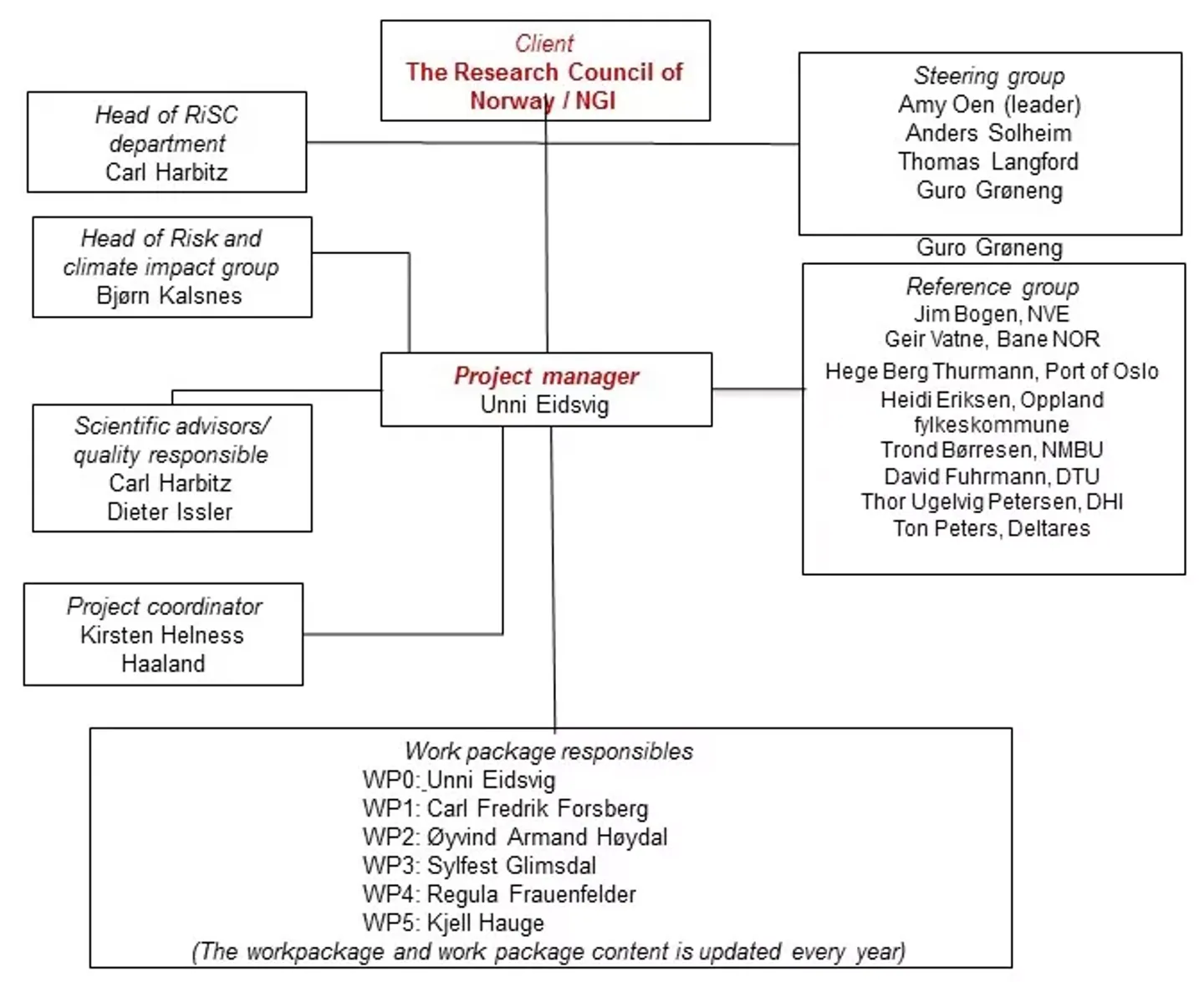Background
Flooding, hydrology, sea level rise and storm surges has been defined by NGI as key strategic areas to study. Sea-level rise and storm surges are also considered important elements in municipal planning and a revised guide has been published by DSB in September 2016.
Water-related challenges in urban areas is expected to increase in the future due to climate change (flooding in suburban rivers, erosion, urban flooding, sea level rise, degradation in the coastal zone due to storm surge, contamination of treatment plants with poor capacity by flooding). There are also challenges related to increasing urbanization globally and particularly in developing countries, where urbanization is characterized by arbitrary development.
Project goals and main objective
The scope of the MERRIC project is to perform research on processes relevant for erosion risk, i.e. processes influencing the probability and/or extent of erosion as well as the consequences of erosion. This will imply investigations of the relevant processes in the transition between water and land in the coastal zone, along the riverbanks, in lakes.
The full range of erosion, both along the shore and in landslides, will be a central theme. The following research topics will be included:
- Identification of conceptual models for erosive and mass-flow processes relevant for the scope of MERRIC.
- Adaptation and/or development and testing of tools for simulation of erosive and mass-flow processes, including entrainment, sediment transport and sedimentation.
- Development of strategies for site-specific analysis of effects of climate change on erosion risk.
- Assessment of conditions affecting the extent of erosion.
- Improved methods for erosion control, both with regard to efficiency and to ecology (link to H2020 application on Nature based solutions).
- Innovative use of geophysical and remote sensing methods to monitor processes to verify and calibrate simulation results, if possible to collect input data for the simulation models and to be used as part of consequence mitigation.
Further goals include:
- Interdisciplinary competence build up at NGI, including development of top competence on this topic at NGI; strengthen and enlarge the group at NGI with competence on erosion risk; application of erosion assessments within the different market areas at NGI.
- Contribution to international Research.
- Market-oriented developments and networking, in order to strengthen NGIs position within the market.
- Dissemination of project results, both within NGI and within the scientific community.
Work packages
The project is divided into five Sub-project (work packages - WPs). See the link to the Sub-projects above.







